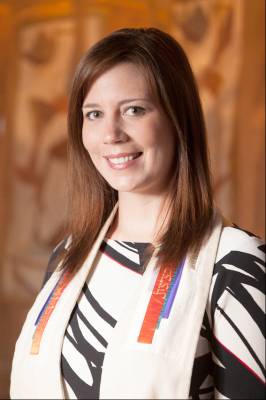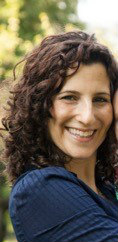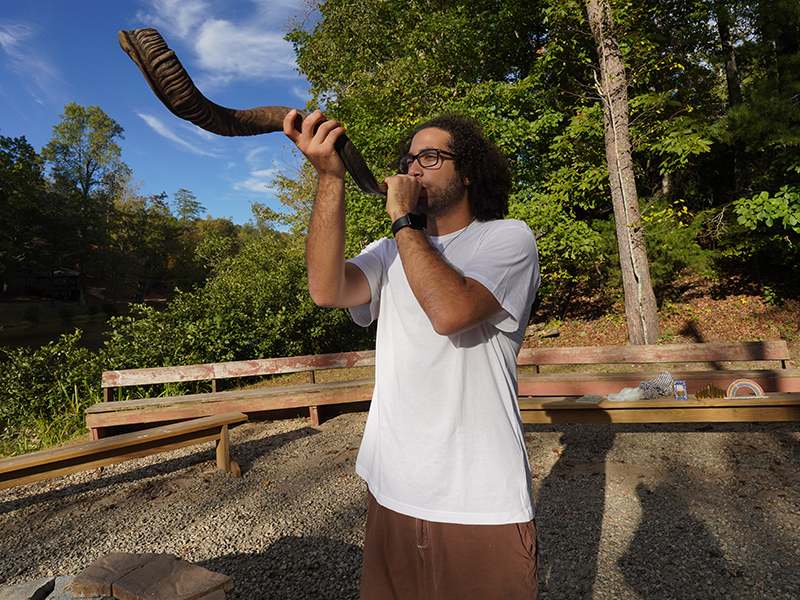 We take control. We lose control. Sometimes things are beyond our control.
We take control. We lose control. Sometimes things are beyond our control.
There is as much value in recognizing what’s within our control as there is in acknowledging what is not. Finding that balance of what to own and what to acknowledge as beyond our reach can be tough. It can be a poignant internal struggle — particularly when you’ve just suffered a trauma or been the victim of a crime.
Victims often blame themselves for violations perpetrated against them. Ironically, that blame can provide a means of regaining control. If we did something that led to the situation, the logic goes that we can know how to avoid it in the future. But that sense of control has its limits.
In Parashat Sh’mot our ancestors have become victims. A new pharaoh rose to power who did not know about the good Joseph had done for Egypt. Fearful of our growing numbers, he enslaved us.
It’s a terrifying prospect — to think that an entire people was enslaved and there was nothing we could do to stop it. Not surprisingly, we as the victims, searched for ways we could have prevented this. We looked to our own actions to offer some explanation of control.
The Torah hints at a flaw in our ancestors that allows for self-blame and the Rabbis latch onto it. If only we had paid attention to that, we tell ourselves, we could have avoided the whole ordeal. What is that flaw? The Torah tells us that the Israelites “were fruitful, swarmed, and multiplied themselves greatly” (Exodus 1:7).
It’s a subtle flaw that can easily be overlooked. The text even echoes a blessing humanity received in Genesis — “to be fruitful and multiply” (Genesis 1:28). What’s so bad about being fruitful and multiplying? But the curious word inserted in the middle of the more familiar blessing causes us to pause —  (vayish’r’tzu), “they swarmed.” The Italian commentator Samuel David Luzzatto (Shadal) reminds us that this too references Genesis, just a less flattering part: “Let the waters bring forth swarms of living creatures” (Genesis 1:20).1 The ancient Israelites are likened to swarms of creatures that slither and squirm out of the water. The medieval commentators Rashi and Ramban make the implications even clearer, noting that the abominable nature of these creatures puts us squarely in the company of flies, beetles, worms, and snails.2
(vayish’r’tzu), “they swarmed.” The Italian commentator Samuel David Luzzatto (Shadal) reminds us that this too references Genesis, just a less flattering part: “Let the waters bring forth swarms of living creatures” (Genesis 1:20).1 The ancient Israelites are likened to swarms of creatures that slither and squirm out of the water. The medieval commentators Rashi and Ramban make the implications even clearer, noting that the abominable nature of these creatures puts us squarely in the company of flies, beetles, worms, and snails.2
The Italian commentator Sforno carries the analogy to its logical conclusion, that we as a swarm of creatures were responsible for our own demise. “After the last of the original 70 migrants [in the original generations of Israelites] had died, their whole lifestyle became more like that of creeping insects, creatures headed for destruction” (Sforno on Exodus 1:7).
We behaved like a swarm. We acted subhuman. And herein, you can see the logic of victim-blaming as a means of regaining control. It can’t be that Pharaoh can come out of nowhere to victimize us all. We must have had control in some way. Perhaps we got too pesty as a people. If only we had been less massive.
Perhaps there is a hint of truth underlying the critique. The Torah portion gives no individual names after the initial generations. When we became numerous, we stopped counting individuals. One Israelite became indistinguishable from the next. When we stopped counting ourselves, they stopped counting us. We became a swarm to ourselves and to them.
But it’s dangerous logic. Therapists note the importance of helping victims out of this self-blame. Reintroducing a sense of control for victims may be essential to their healing. But this is not a healthy way to go about it.
To say that our actions were the cause of our slavery distorts the truth. Pharaoh was the perpetrator; we were the victims. His actions were beyond our control. So how do we find this balance of reintroducing control into our lives as victims without giving in to the logic of victim-blaming?
The Torah gives us an alternative for regaining control. Moving forward, we make the choice to count ourselves. In Parashat Va-eira, which immediately follows this week’s portion, the Israelites regain a sense of who they are: they count the generations that had gone unnamed before Pharaoh enslaved us. They reclaim their humanity by naming their tribal heads, and giving a sense of order and structure. We are not a shapeless mass. We are a proud people.
And in the desert, once freed, God reminds us of the power of being counted through the census. Counting ourselves becomes our way of regaining control as victims. When we feel less than human, like we’re more of a swarm than a people, we count ourselves. We remind ourselves that we are not an indistinguishable mass. We may not be able to control how others perceive us, but we certainly can control how we see ourselves. And we are more than a pesty swarm.
- Samuel David Luzzatto (Shadal), commentary on Exodus 1:7
- Rashi on Genesis 1:20: Swarms of “bugs,” sheretz
 . Every living creature that does not rise much above the ground is called sheretz, for example, of winged creatures flies; of abominable creatures — ants, beetles and worms; of larger creatures — the mole, snail and others of the same kind, and all fishes. (Also see Rashi and Ramban on Exodus 1:7)
. Every living creature that does not rise much above the ground is called sheretz, for example, of winged creatures flies; of abominable creatures — ants, beetles and worms; of larger creatures — the mole, snail and others of the same kind, and all fishes. (Also see Rashi and Ramban on Exodus 1:7)
Rabbi Sarah Bassin is the associate rabbi at Temple Emanuel of Beverly Hills, in Beverly Hills, CA and former executive director and board member of NewGround: A Muslim-Jewish Partnership for Change.
 In her astute analysis of Parashat S’hmot, Rabbi Bassin discusses the Israelites’ compulsion to see themselves as agents of their own downfall. Pharaoh would not have turned against them unwittingly, so the Israelites must have done something to prompt him. That something is identified in the verse: But the Israelites were “fertile, swarmed, and multiplied themselves greatly” (Exodus 1:7). One word, “swarmed,” is all it takes to characterize an entire people as a squirmy, slimy, buzzing pestilence.
In her astute analysis of Parashat S’hmot, Rabbi Bassin discusses the Israelites’ compulsion to see themselves as agents of their own downfall. Pharaoh would not have turned against them unwittingly, so the Israelites must have done something to prompt him. That something is identified in the verse: But the Israelites were “fertile, swarmed, and multiplied themselves greatly” (Exodus 1:7). One word, “swarmed,” is all it takes to characterize an entire people as a squirmy, slimy, buzzing pestilence.
In making such a comparison, the text strips the Israelites of their humanity. Is it possible that seeing themselves as subhuman is the only way they can square their inhumane treatment? Or is removing any last trace of dignity from their lives the only way they can actually confront the indignities of slavery?
Our text, though, is quick to underscore that despite statements made to the contrary, every slave is, indeed, fundamentally human. And Shiphrah and Puah, two God-fearing Hebrew midwives, are determined to prove the point. Though mandated to kill every Hebrew male birthed, they choose to see each boy as a viable, unassailable, innocent soul worthy of living. They reject, wholeheartedly, the notion that these children are any less legitimate than anyone else. And they refuse to support a campaign of cruelty in the name of the Pharaoh. In fact, the Talmud teaches that Shiphrah and Puah not only permit the boys to live, but they also “actively help them to live” (Babylonian Talmud, Sotah 11b). Thus these two courageous women use their power to both affirm the radical humanity of the Israelites and reject the cruel narrative of inhumanity foisted upon them by Pharaoh.
Hillel taught, “In a place where there are no humans, we must strive to be one.” (Pirkei Avot 2:5). Shiphrah and Puah embody this lesson with tremendous strength and courage, showing us that even in the face of bitter barbarism, we must stand up for what is right, what is moral, and what is good. Moreover, neither Shiphrah nor Puah ever lose sight of the divine spark hidden within; reminding us that, through good times and bad, neither should we.
Rabbi Sara Y. Sapadin serves as adjunct rabbi at Congregation Emanu-El of the City of New York in NY, NY.
Sh’mot, Exodus 1:1−6:1
The Torah: A Modern Commentary, pp. 382−414; Revised Edition, pp. 343–374
The Torah: A Women’s Commentary, pp. 305–330
Haftarah, Isaiah 27:6–28:13; 29:22−23
The Torah: A Modern Commentary, pp. 692−695; Revised Edition, pp. 375−378
Explore Jewish Life and Get Inspired
Subscribe for Emails



